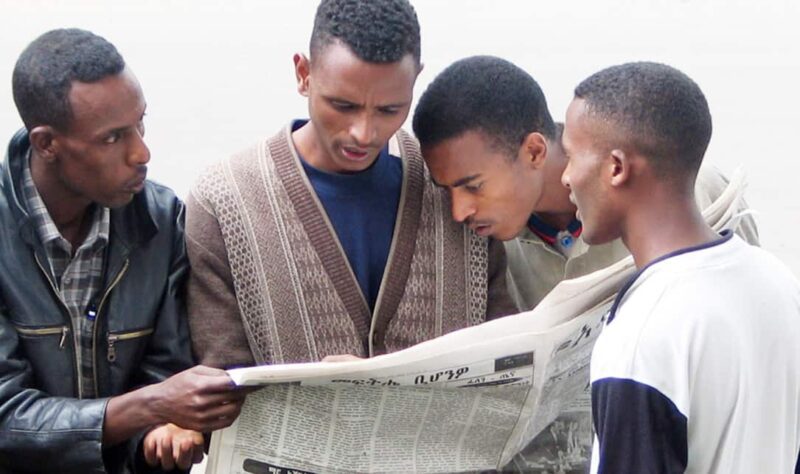A disinformation campaign spread on Facebook is believed to have led to the murder of popular Ethiopian singer Hachalu Hundessa in June. His death led to violence, also fueled by hate speech on Facebook, in the capital and in Hundessa’s home region of Oromia.
At around 18%, Ethiopia has one of the lowest internet penetration rates in the world. But with 3.7 million active users in the country, Facebook is nearly synonymous with the internet for many Ethiopians.
This rising tide of misinformation and disinformation in Ethiopia is alarming. In March 2020, the government passed a Hate speech and Disinformation Prevention and Suppression Proclamation. However, it is feared that the law might be used to silence dissenting voices, journalists and others who may go online to criticize the government.
After Hundessa’s murder, the government shut down the Internet to try to stem the tide of hate speech, but this also blocked truthful information at a time when Ethiopians needed it most.
Ethiopia Check provides verified information
To combat disinformation and cultivate a more conducive communication environment, Elias Meseret, a renowned Ethiopian journalist, established Ethiopia Check in June 2020. With support for technical and operational upgrades, Ethiopia Check became a project of Internews in August.
Ethiopia Check debunks claims and exposes fake news using its platforms on Facebook (52,000 followers), Twitter (7,000 followers) and Telegram (34,000 followers). Ethiopia Check also provides online tools for the public to check the authenticity of images circulating on social media and distributes an email newsletter to newsrooms across the country.
The success of the platform and of the partnership has been immediate.
From August through November, the desk received over 1,315 claims from followers on the three platforms, requesting verification of rumours, social media accounts and news items. Seventy-seven fake news and accounts were exposed. The calls come from ordinary citizens, journalists, political and social activists, and ministers and officials.
Fact-checking by itself is a sensitive topic in the current Ethiopian context as ethnic, religious, and political affiliations and connections are becoming extreme and diverse. Ethiopia Check takes utmost care in the word use and the conduct of verifications to remain unbiased.

Newsrooms and social media accounts such as Addis Standard and Ahadu Radio & TV have cited the work of Ethiopia Check, such as in this tweet regarding the resignation of a board member from the National Election Board of Ethiopia.
The platform plans to start a website and a mobile app in the near future.
Internews, under the Consortium for Electoral and Political Processes Strengthening (CEPPS) partnership funded by USAID, works in Ethiopia to ensure increased access to information which meets the public needs as well as critically engage with media and information to enhance citizen’s capability to reject false and harmful information.
(Banner photo: Newspaper readers in Addis Ababa, Ethiopia. By Terje Skjerdal/CC)
